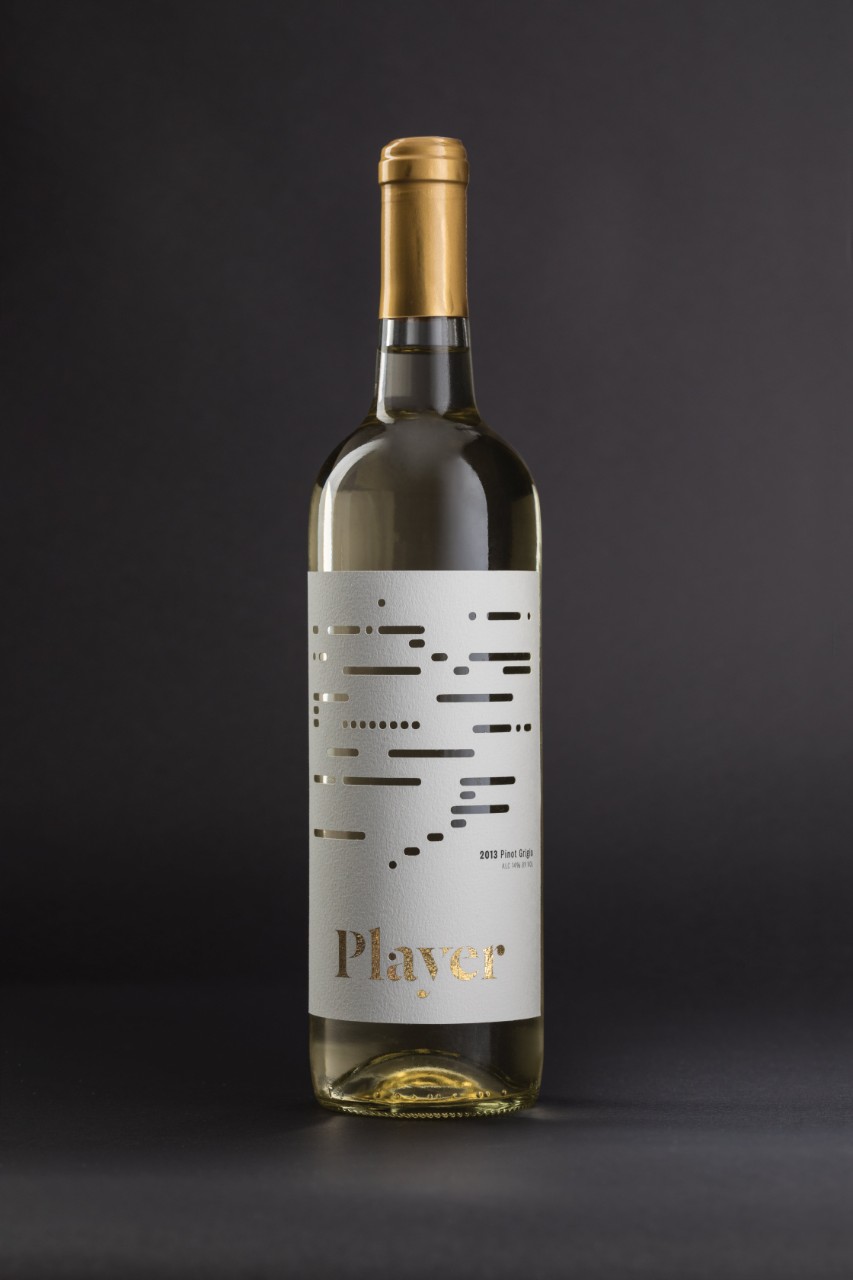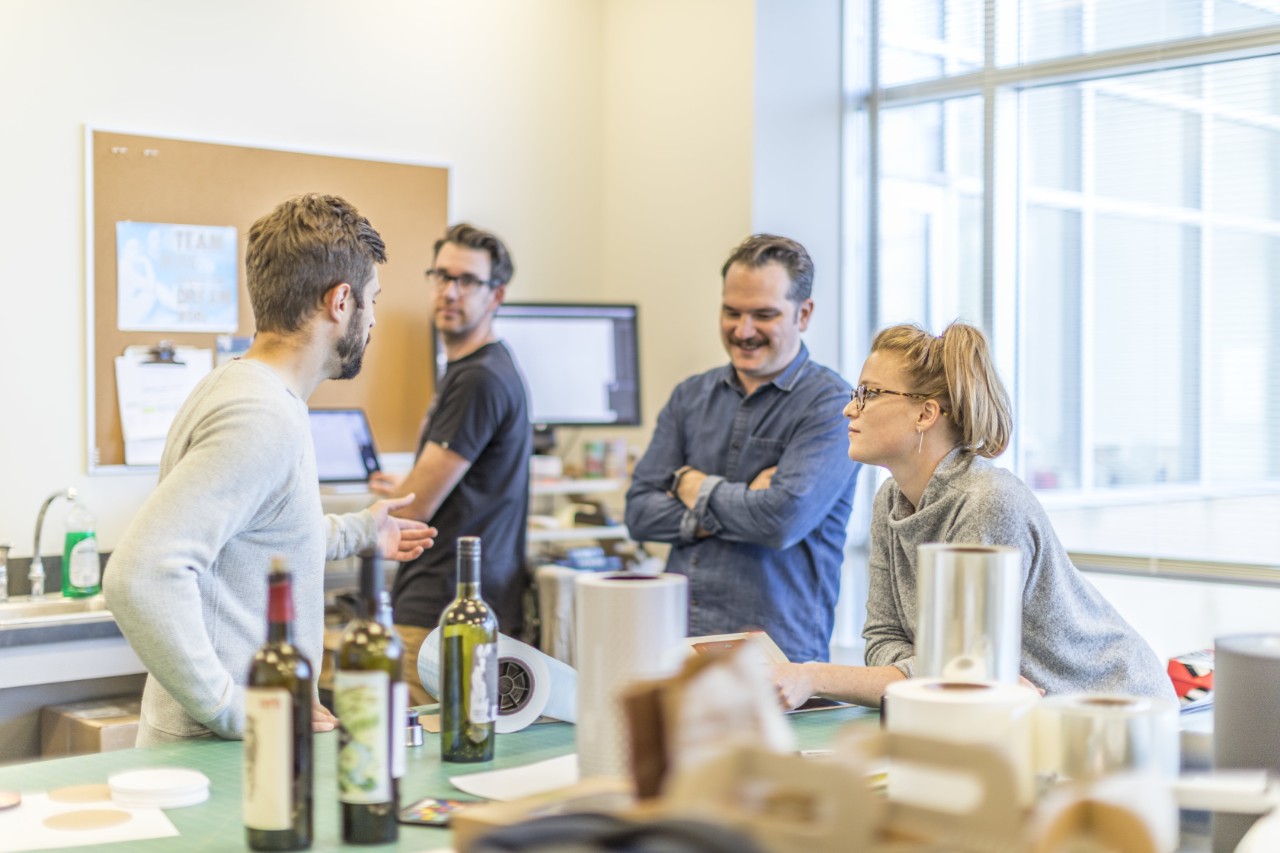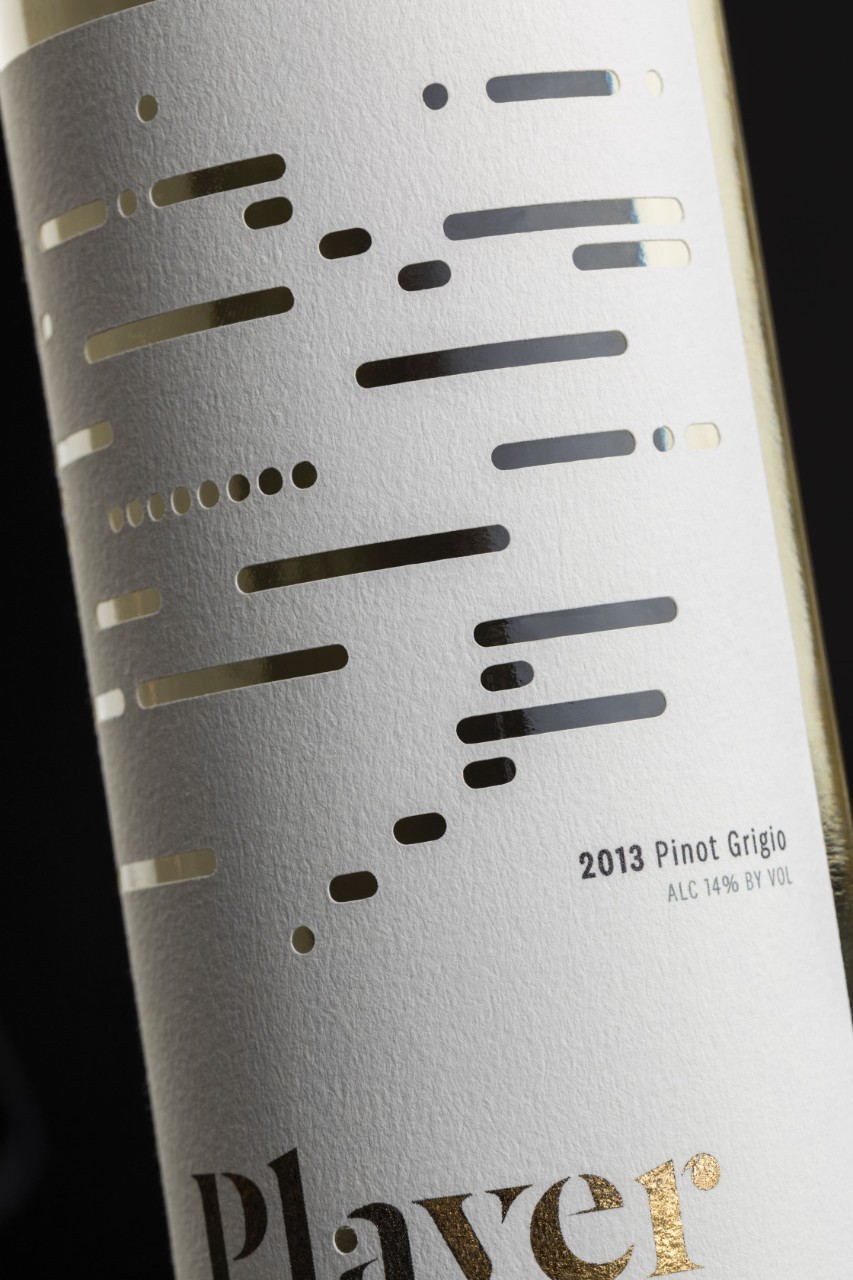Inspired design begins with a spark
A cracked sidewalk in Cleveland. A colorful alleyway in New Orleans. To Designer Aly Dodds, it’s these small nuances that transform a simple wine label into a dynamic visceral experience. A cracked sidewalk becomes the foundation of a brand story, a colorful alleyway the palette.
Last fall, Aly made her way around a secondhand store when she was stopped in her tracks by an odd display—a towering pile of old, dusty rectangular boxes with fading and peeling labels. From one of the boxes, a spool of yellowed piano paper rolled out
Looking closer, she found an intricate diagrammatic design with small holes punctuating the paper. She says there was a kinetic quality to it, “There was this nonmusical physical object that could literally create sound.”
She compares the experience to that of synesthesia, a phenomenon in which a person receives a sensorial impression from a stimulus typically associated with another, such as when a person hears color or sees sound. “The visual quality of that stuck with me and I knew I wanted to make it into something.”

A canvas on which to play
When the new materials for the 2018 Wine Book were announced, Aly found an opportunity to manifest a unique creative vision with Fasson® Cotton White Tree Free, an uncoated tree-free paper made of 100 percent cotton. The white matte paper features a velvety texture and is offered as a high-strength sustainable solution for wine and luxury beverage labeling.
“The cotton seemed like the perfect canvas,” she says, since cotton itself is known for its tactility and its ability to hold embossment and intricate die cuts. She laughs and says, “I just knew when I held the material in my hand—this is going to be my playground right now.”
For Aly, a look to the past is where every design starts. “I am always very cognizant of the materials I’m using. I look at their contents and consider the resources. I ask, ‘what was this material intended for?’ and ‘why was this material made?’” She says.
These questions inform her as she repurposes those same materials and uses them to connect with an audience. Aly paired the Fasson Cotton White Tree Free facestock with a foil application and serif font for Player, both of which seem to harken back to that classy jazz age player piano feel.
Player pianos, or self-playing pianos, were popular in the United States in the early 20th century with sales peaking around the mid-1920s and declining rapidly at the start of the Great Depression. The “Roaring Twenties,” as the decade is commonly called, is known for speakeasies, glamorous fashion, jazz music and the rise of moving film. The popularity and prevalence of the arts shifted the way people interacted with one another and acted as a catalyst for cultural change.
As Aly says, “It’s easy to make something look good. But good label and packaging design is about more than that… “It’s about making a connection that resonates with a consumer far beyond the life of the product.”
To be effective, she explains, means to communicate the origin story of a brand or product without words—a feat well accomplished by the Player prototype.



Breathing life into Player
The Player prototype label was cut in The Concept Lab at Avery Dennison on a die cut plotter machine. The technique used in-house is a somewhat offline technique in the sense that it doesn’t necessitate a custom plate. The Concept Lab handles a wide range of materials to create custom designs for small runs and a multitude of applications, so the ability to precisely adjust to height, width and depth of cut for each prototype is essential.
“I love it because it's a no-frills machine that's really consistent and allows us to push the potential of our material and achieve a range of cutting styles—everything from a layered effect to the most intricate, detailed design,” Aly says.
In The Concept Lab, prototyping makes up about 75 percent of the workload, both for internal and external needs.
Internally, the team creates custom labels and packaging for trade shows, sales and marketing and potential customers, to offer an example of what Avery Dennison materials can accomplish. Externally, the team partners with agencies and designers looking for a tangible experience to create custom prototypes that push the boundaries of traditional design for label and packaging materials.
Player is just one example of how label and packaging materials become the canvas of a brand narrative. Far beyond offering customers a pretty little number to look at, the Player prototype label offers an origin story that is reminiscent of the birth of modern American culture. It is a spirited manifestation of the convergence of everyday inspiration and a deep love and knowledge of materials.









